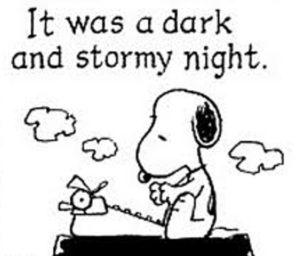BIG WORDS VS. LITTLE ONES
 One of the beta-readers for my forthcoming novel, FIREWIND, took me to task (which is what I expect beta-readers to do) for using several “big” or “obscure” words when more common words would have sufficed. He pointed out, correctly, that readers get annoyed if they have to constantly refer to a dictionary. In truth, novelists are taught from the get-go to avoid complex words when simpler ones work.
One of the beta-readers for my forthcoming novel, FIREWIND, took me to task (which is what I expect beta-readers to do) for using several “big” or “obscure” words when more common words would have sufficed. He pointed out, correctly, that readers get annoyed if they have to constantly refer to a dictionary. In truth, novelists are taught from the get-go to avoid complex words when simpler ones work.
I agree. One of the shortcomings I had early in my writing career was using too many words that were unfamiliar to too many people. But . . . I think a few such words are okay. I don’t mind learning a new word every once in awhile, even in the course of reading a novel. I hope my readers don’t either. Besides, there are “big” words I like, ones that convey better than “tiny” ones the picture I really want to paint.
For instance, I like tenebrous and diaphanous. But I probably could do better than using terms such as visitant and pejorative, at least in a novel. Oh, and gloaming? I thought most people knew that word, but maybe not.
Another thing novelists are taught to shun are adverbs, you know, those modifiers that end in ly: brightly, strongly, rapidly, etc. It’s suggested strong verbs be employed instead. That’s great. I try to do that. But . . . there are times I think adverbs work just fine and fit better into the flow of a narrative. I’m not reluctant to use them. For instance, sometimes I want a character to move quickly. I don’t want him or her springing, dashing, or darting, just moving quickly.
Okay, that’s my mini-vent for today. Feel free to weigh in with your own thoughts and opinions. Love to hear ‘em. They’re just as valid as mine.
I love to learn new words, and while I agree that a shorter word will often suffice, there is a beauty to some of those bigger words that can be lacking in the short ones.